dynamite
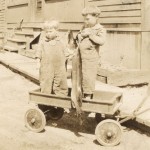
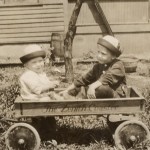 It’s hard for me to believe that my uncle, Bill Spencer has been in Heaven for more than three years already. Uncle Bill chose Christmas Day to go. I think maybe he wanted to spend the holiday with his parents and siblings. He was the last of the original family to go to Heaven, and with Covid stalking the world, he didn’t get to see his children as much either. Since Uncle Bill had Dementia, he probably didn’t realize that he didn’t get to see much of his family, but they knew it, and it made them sad. There were months and months during which they could not go visit him, and sadly it didn’t matter that all these precautions were taken. Uncle Bill still got Covid, and by Christmas Day, he was ready to go home. And so, on Christmas Day 2020, the Spencer brothers got back together again.
It’s hard for me to believe that my uncle, Bill Spencer has been in Heaven for more than three years already. Uncle Bill chose Christmas Day to go. I think maybe he wanted to spend the holiday with his parents and siblings. He was the last of the original family to go to Heaven, and with Covid stalking the world, he didn’t get to see his children as much either. Since Uncle Bill had Dementia, he probably didn’t realize that he didn’t get to see much of his family, but they knew it, and it made them sad. There were months and months during which they could not go visit him, and sadly it didn’t matter that all these precautions were taken. Uncle Bill still got Covid, and by Christmas Day, he was ready to go home. And so, on Christmas Day 2020, the Spencer brothers got back together again.
My dad, Allen Spencer was two years younger than his brother, Bill, but they were the very best of friends. When they were together, you didn’t have to ask them to talk about their childhood, all you have to do was sit back and listen, because the stories were the talk of the day. They had so many great adventures. They would go fishing, swimming, and boating with friends. They also loved getting into mischief, and dynamite was one of 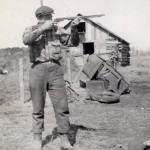
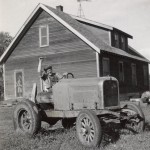 their favorite mischief makers. They normally used dynamite to remove tree stumps, but they weren’t above the Independence Day “fireworks” display or the “gate post” experiment. They were very industrious boys, and in those days, before things like video games, television (while it did exist, was not common in every household), and telephones (they were first in homes in 1856, but only 35% of homes in the 1920s had one), kids actually played outside, and used their imaginations. These brothers had the best time. They rode their bicycles for miles and miles. They hopped the trains…no, not like illegally. These boys had a pass, because their dad worked on the trains, but they never simply boarded a train…they hopped the train, even though they were scolded for it, they hopped the trains anyway. Danger be hanged!! Oh, the adventures they had.
their favorite mischief makers. They normally used dynamite to remove tree stumps, but they weren’t above the Independence Day “fireworks” display or the “gate post” experiment. They were very industrious boys, and in those days, before things like video games, television (while it did exist, was not common in every household), and telephones (they were first in homes in 1856, but only 35% of homes in the 1920s had one), kids actually played outside, and used their imaginations. These brothers had the best time. They rode their bicycles for miles and miles. They hopped the trains…no, not like illegally. These boys had a pass, because their dad worked on the trains, but they never simply boarded a train…they hopped the train, even though they were scolded for it, they hopped the trains anyway. Danger be hanged!! Oh, the adventures they had.
When the United States entered World War II, the brothers were all set to go into the Army Air Force together, but Uncle Bill had a hernia and flat feet, so they wouldn’t take him. My dad went in alone, and his big brother, who had always been there to take care of him, was…well, a little frantic about it. He didn’t want my dad to go 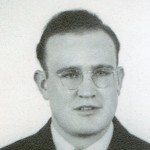
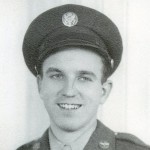 without him. He worried about his little brother. Sending any family member into the military in times of war, is something any family would worry about, and Uncle Bill was no exception. So, while his brother fought in the war, Uncle Bill worked on the planes here at home. Uncle Bill was a welder, and his skills were very important in the building of the planes that would fight and eventually win World War II. His was a very important job, and I am very proud of the part he played in the victory. Today would have been Uncle Bill’s 102nd birthday. Happy birthday in Heaven, Uncle Bill. We love and miss you very much.
without him. He worried about his little brother. Sending any family member into the military in times of war, is something any family would worry about, and Uncle Bill was no exception. So, while his brother fought in the war, Uncle Bill worked on the planes here at home. Uncle Bill was a welder, and his skills were very important in the building of the planes that would fight and eventually win World War II. His was a very important job, and I am very proud of the part he played in the victory. Today would have been Uncle Bill’s 102nd birthday. Happy birthday in Heaven, Uncle Bill. We love and miss you very much.

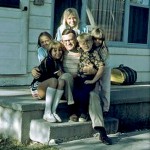 For Christmas, I gifted my grandson, Josh Petersen and his fiancée, Athena Salazar a Cribbage Board game. Since that time, I have been thinking a lot about my uncle, Bill Spencer, who taught me to play Cribbage when I was a kid. We had so many great times playing Cribbage together. Uncle Bill was a stickler for actually “teaching” me the game, without “giving” me the game. I always appreciated that about him, because I knew that when I won…I really won. Uncle Bill was a fair, and sometimes, as with his family history documents, brutally honest man. He didn’t take credit where it wasn’t due him, and he always gave fair and honest praise. I think I am a lot like him in that way. I like things to be fair, honest, and above board.
For Christmas, I gifted my grandson, Josh Petersen and his fiancée, Athena Salazar a Cribbage Board game. Since that time, I have been thinking a lot about my uncle, Bill Spencer, who taught me to play Cribbage when I was a kid. We had so many great times playing Cribbage together. Uncle Bill was a stickler for actually “teaching” me the game, without “giving” me the game. I always appreciated that about him, because I knew that when I won…I really won. Uncle Bill was a fair, and sometimes, as with his family history documents, brutally honest man. He didn’t take credit where it wasn’t due him, and he always gave fair and honest praise. I think I am a lot like him in that way. I like things to be fair, honest, and above board.
It’s hard for me to believe that my Uncle Bill has been in Heaven a little over 2 years now. He passed away on 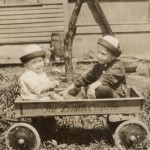
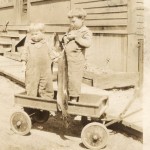 Christmas day, 2020. I didn’t see much of him toward the end, because he had dementia. Still, the times I saw him were such a treasure to me. The fact that he went home to Heaven didn’t really change very much in my life…physically, but it changed so much mentally. I always knew he was there, and while writing him a letter was out of the question, we were able to send him gifts that we knew he would enjoy…even though he wouldn’t know who sent them.
Christmas day, 2020. I didn’t see much of him toward the end, because he had dementia. Still, the times I saw him were such a treasure to me. The fact that he went home to Heaven didn’t really change very much in my life…physically, but it changed so much mentally. I always knew he was there, and while writing him a letter was out of the question, we were able to send him gifts that we knew he would enjoy…even though he wouldn’t know who sent them.
Uncle Bill was my favorite uncle. I loved all my uncles, of course, but Uncle Bill was like me…or, I was like him. I think my dad, Allen Spencer was a lot like his brother too. They were two of a kind…the Spencer boys. Always coming up with some new idea, even if it was a mischievous one. I can practically see God’s, for lack of a better word, reaction to Uncle Bill’s homecoming. My first reaction was, “Hide the dynamite!! The Spencer boys are 
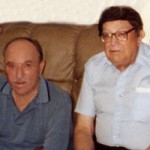 back together!!” Of course, if there is dynamite in Heaven, it will not be a destructive force, but I have no doubt that it will make a loud noise. The Spencer boys would love it if it did, so I’m sure God would make that arrangement…just for them. Today would have been my Uncle Bill’s 101st birthday. I think he would have loved that he almost made it to 100 years old. The only thing that would have pleased him more than 98, or almost 99 years, would have been 100 years. Happy birthday in Heaven, Uncle Bill. You boys be good and have a great party!! We love and miss you, very much.
back together!!” Of course, if there is dynamite in Heaven, it will not be a destructive force, but I have no doubt that it will make a loud noise. The Spencer boys would love it if it did, so I’m sure God would make that arrangement…just for them. Today would have been my Uncle Bill’s 101st birthday. I think he would have loved that he almost made it to 100 years old. The only thing that would have pleased him more than 98, or almost 99 years, would have been 100 years. Happy birthday in Heaven, Uncle Bill. You boys be good and have a great party!! We love and miss you, very much.
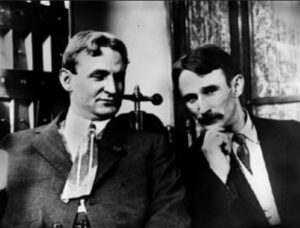
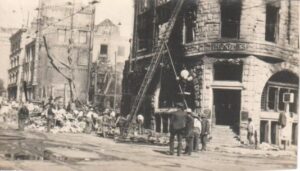 The battle between those who support unions and those who do not, has gone on for a long time, and each has its pros and cons. Unions help employers create a more stable, productive workforce…one in which workers have a say in improving their jobs. Unions help bring workers out of poverty and into the middle class. In fact, in states where workers don’t have union rights, workers’ incomes are lower. So, it is always “in the employer’s best interest” not to have a union, but really not in the best interest of the workers, for whom the working conditions can be sub-par, and even dangerous. Because of that, the battle between the two sides has raged on for many years.
The battle between those who support unions and those who do not, has gone on for a long time, and each has its pros and cons. Unions help employers create a more stable, productive workforce…one in which workers have a say in improving their jobs. Unions help bring workers out of poverty and into the middle class. In fact, in states where workers don’t have union rights, workers’ incomes are lower. So, it is always “in the employer’s best interest” not to have a union, but really not in the best interest of the workers, for whom the working conditions can be sub-par, and even dangerous. Because of that, the battle between the two sides has raged on for many years.
In the early 1900s, one such situation resorted to violence, and that violence came to a boiling point on October 1, 1910, when a suitcase bomb ignited a massive explosion that destroyed the Los Angeles Times building in the Los Angeles’ downtown area. The explosion killed 21 and 100 more people, all of whom were workers for the Los Angeles Times, who were working late to put out an early afternoon edition of the paper to celebrate the results of the Vanderbilt Cup auto race. Since Los Angeles Times publisher Harrison Otis was an extreme opponent of unions, he believed that the bomb was directed at him. With that in mind, he hired the nation’s premier private detective of that time, William J Burns, to crack the case. Otis was now a quiet opponent to unions, and in fact, he printed numerous editorials against unions. He was also the leader of the Merchants and Manufacturing Association, a powerful group of business owners with extensive political connections…and very much anti-union.
As Burns investigation progressed, it led him to the Bridge and Structural Iron Workers Union and their treasurer, John J McNamara. McNamara’s brother, James B (JB) was discovered to be the actual bomber. He left a suitcase with a dynamite bomb near barrels of flammable printer’s ink between the Los Angeles Times Building and the Times annex, known as “Ink Alley”, which contained the paper’s printing press. The dynamite had a detonator connected to a mechanical windup clock, set to close an electric battery circuit at 1:00am, and set off the explosion. JB left similar bombs, also set to explode at 1:00am, next to the homes of both Times publisher, Otis and Felix Zeehandelaar, secretary of the M and M. He then boarded a train to San Francisco so he could have credible evidence that he was out of town when the bomb at the Times building went off.
In April 1911, after Burns got a confession out of Ortie McManigal, who had allegedly been the intermediary between McNamara and two bomb experts, he personally arrested John McNamara and his brother, James in Indiana. Burns also managed to get the brothers to California, without any legal authority, where they were to be prosecuted.
In an immediate response, union members and left-wing supporters alike, rallied around the McNamara brothers. They quickly raised a large defense fund, and union representatives pleaded with Clarence Darrow to take the case. Darrow, who was the best defense attorney America had to offer at that time. He was noted for getting “Big Bill” Haywood, the union leader of the Industrial Workers of the World, off on murder charges in Idaho a few years earlier. They offered him $50,000, and he found that he just couldn’t resist, so he took the case. As the case progressed, Darrow began to realize that the McNamara brothers were guilty, and as evidence mounted, he worked a deal in which JB McNamara pled guilty and received life in prison, as opposed to the death penalty. Despite repeated attempts by left-wing labor leaders and certain politicians to win his release, he refused to file any parole requests. James B (JB) McNamara died of cancer in San Quentin on March 9, 1941. John J (JJ) McNamara received 17 years in prison. JJ McNamara left prison after nine years, and the 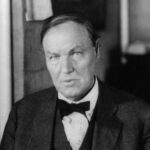
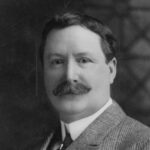 Iron Workers’ union welcomed him back as an organizer. He was convicted of threatening the destruction of a building unless the contractor hired union members and was sent back to prison. Released once more, the union discovered that he had embezzled $200, and fired him. JJ spent the rest of his life drifting from job to job, and died in Butte, Montana on May 8, 1941. In all, 40 additional co-conspirators were convicted of various crimes and served various sentences, but it was always thought that the McNamara brothers were the ring leaders, and that they others had bit parts in the attack.
Iron Workers’ union welcomed him back as an organizer. He was convicted of threatening the destruction of a building unless the contractor hired union members and was sent back to prison. Released once more, the union discovered that he had embezzled $200, and fired him. JJ spent the rest of his life drifting from job to job, and died in Butte, Montana on May 8, 1941. In all, 40 additional co-conspirators were convicted of various crimes and served various sentences, but it was always thought that the McNamara brothers were the ring leaders, and that they others had bit parts in the attack.
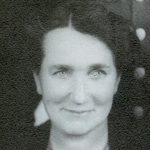
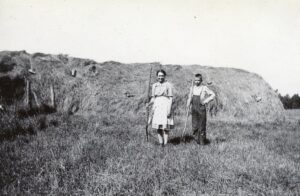 My dad’s mom, Anna Spencer was such a strong woman. My grandfather, Allen Spencer worked on the Great Northern Railway, and so Grandma was in charge of the kids, including her two rambunctious boys, my Uncle Bill and my dad, Allen. Now that doesn’t say that her two girls weren’t a handful too, but my Aunt Laura and my Aunt Ruth, likely caused her a little bit less trouble than her mischievous boys…especially when it came to their use of dynamite. Being farm boys, they used dynamite to remove tree stumps, for their wake-up call on Independence Day, as well as the occasional gatepost (which then had to be raised two inches before their mom came home from town). Nevertheless, Grandma was loved and respected by her children.
My dad’s mom, Anna Spencer was such a strong woman. My grandfather, Allen Spencer worked on the Great Northern Railway, and so Grandma was in charge of the kids, including her two rambunctious boys, my Uncle Bill and my dad, Allen. Now that doesn’t say that her two girls weren’t a handful too, but my Aunt Laura and my Aunt Ruth, likely caused her a little bit less trouble than her mischievous boys…especially when it came to their use of dynamite. Being farm boys, they used dynamite to remove tree stumps, for their wake-up call on Independence Day, as well as the occasional gatepost (which then had to be raised two inches before their mom came home from town). Nevertheless, Grandma was loved and respected by her children.
Grandma and the kids ran the farm, and that meant putting the hay up into stacks by hand, taking care of the animals and the garden. When they were working, Grandma was all business, but that didn’t mean the kids followed suit. My Aunt Ruth loved horses and dogs too, and goofing off for my Uncle Bill, so he could take a picture of her. Somehow, it once caught my grandma in the picture looking at her mischievous children, goofing off instead of working. Somehow, she was not very amused, but while Grandma didn’t think it was funny, the picture is one that always makes me laugh. I don’t know if my Aunt Ruth got in trouble for “shirking” her responsibilities or not, but I’ll bet she at least heard about it. Grandma was not really a pushover, after all. In those days, when it was time to work, the kids had better toe the line.
During the time when my grandma was raising kids, the country was going through the Great Depression years, and time were tough anyway, so the people also had to be tough. The men were often working somewhere also, and the women had to take on the role of both parents, and even businesswomen. My grandmother ran a hotel for a time, and my Aunt Laura, who was just ten years old when my Uncle Bill was 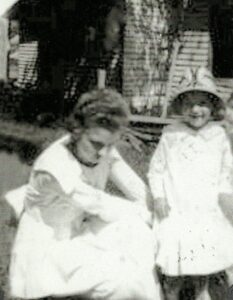
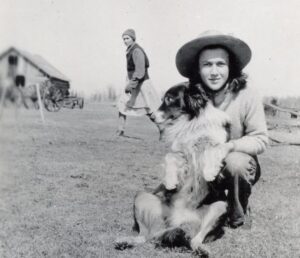 born, was responsible for his day-to-day care. My Uncle Bill actually remembered that time fondly. He and his big sister were very close at that time. I’m sure it was not the ideal situation for my grandmother, who must have felt like she was missing out on the baby years, but she persevered, and the family did well. Grandma was a tough lady, because she had to be, and the family needed her to be. I’m very proud of the strong woman she was. Today, Grandma is in Heaven, but this is the 135th anniversary of that great lady’s birth. Happy birthday in Heaven, Grandma. We love and miss you very much.
born, was responsible for his day-to-day care. My Uncle Bill actually remembered that time fondly. He and his big sister were very close at that time. I’m sure it was not the ideal situation for my grandmother, who must have felt like she was missing out on the baby years, but she persevered, and the family did well. Grandma was a tough lady, because she had to be, and the family needed her to be. I’m very proud of the strong woman she was. Today, Grandma is in Heaven, but this is the 135th anniversary of that great lady’s birth. Happy birthday in Heaven, Grandma. We love and miss you very much.

 My dear uncle, Bill Spencer, who left us on Christmas day, 2020, was such a favorite of mine. We were a lot alike, and we had many of the same interests. It was Uncle Bill who taught me to play cribbage, but was never one to let me win. I learned to play well, and when I won…I knew I had really won. Back when you could get away with letting your kid drive on your lap, or even themselves with you in the car, well before they were of an age to get a permit, he let me drive to their cabin when we visited. Even my dad was ok with it, so I drove the three of us for quite a while. As a mom, when my kids needed family history information, I knew that my Uncle Bill was the guy to go to. He was the family historian from the time he was eight years old, and I quickly became as obsessed as he was. Uncle Bill did his research the old fashioned was, by making trips to different places to look in cemeteries, county and state records offices, and libraries. It was much harder work back then, and those of us who have been the beneficiaries of Uncle Bill’s hard work, can say that he has done a great work.
My dear uncle, Bill Spencer, who left us on Christmas day, 2020, was such a favorite of mine. We were a lot alike, and we had many of the same interests. It was Uncle Bill who taught me to play cribbage, but was never one to let me win. I learned to play well, and when I won…I knew I had really won. Back when you could get away with letting your kid drive on your lap, or even themselves with you in the car, well before they were of an age to get a permit, he let me drive to their cabin when we visited. Even my dad was ok with it, so I drove the three of us for quite a while. As a mom, when my kids needed family history information, I knew that my Uncle Bill was the guy to go to. He was the family historian from the time he was eight years old, and I quickly became as obsessed as he was. Uncle Bill did his research the old fashioned was, by making trips to different places to look in cemeteries, county and state records offices, and libraries. It was much harder work back then, and those of us who have been the beneficiaries of Uncle Bill’s hard work, can say that he has done a great work.
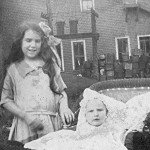
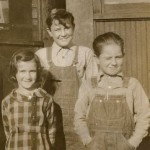 Uncle Bill is my dad, Allen Spencer’s older brother. Uncle Bill was ten years younger than his sister, Laura Fredrick, and three years older than his younger sister, Ruth Wolfe. The two boys were in the middle. The family lived many years in Holyoke, Minnesota, and ran a farm there. Uncle Bill, being the oldest son, played a big part in the farming. He, along with mostly my dad and Aunt Ruth helped with haying, and growing the the gardens. Their dad worked for the railroad, and so the farm was largely left to my grandmother, Anna Spencer, and the kids. My Aunt Laura was married during a good part of the younger children’s growing up years. Nevertheless, Uncle Bill and Aunt Laura were very close during his childhood years when their mother was working and Aunt Laura took care of him. They grew to have a close friendship, as well as being siblings.
Uncle Bill is my dad, Allen Spencer’s older brother. Uncle Bill was ten years younger than his sister, Laura Fredrick, and three years older than his younger sister, Ruth Wolfe. The two boys were in the middle. The family lived many years in Holyoke, Minnesota, and ran a farm there. Uncle Bill, being the oldest son, played a big part in the farming. He, along with mostly my dad and Aunt Ruth helped with haying, and growing the the gardens. Their dad worked for the railroad, and so the farm was largely left to my grandmother, Anna Spencer, and the kids. My Aunt Laura was married during a good part of the younger children’s growing up years. Nevertheless, Uncle Bill and Aunt Laura were very close during his childhood years when their mother was working and Aunt Laura took care of him. They grew to have a close friendship, as well as being siblings.
As they grew older, Uncle Bill and my dad were the definitely the boys of the family. They loved getting into all kinds of trouble. The jumped on the moving trains, even though they had a pass to ride. They played with dynamite, even sinking the gatepost couple of inches. They also loved to go fishing, and often brought home a 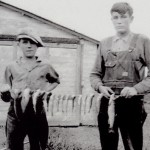
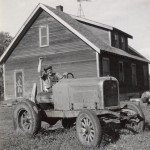 good catch, which all the family got to enjoy. Even though they were typical boys, I guess they weren’t all bad. I’m sure that when Uncle Bill got to Heaven a little less than a month ago, there was a wonderful reunion between the brothers, as they rest of their family too. It makes me sad to know that all of the siblings are gone to Heaven now, but only for myself and those of us left here. For the siblings it a big celebration. They are all together again. Today would have been Uncle Bill’s 99th birthday…and his first birthday in Heaven. Happy birthday in Heaven, Uncle Bill. We love and miss you very much.
good catch, which all the family got to enjoy. Even though they were typical boys, I guess they weren’t all bad. I’m sure that when Uncle Bill got to Heaven a little less than a month ago, there was a wonderful reunion between the brothers, as they rest of their family too. It makes me sad to know that all of the siblings are gone to Heaven now, but only for myself and those of us left here. For the siblings it a big celebration. They are all together again. Today would have been Uncle Bill’s 99th birthday…and his first birthday in Heaven. Happy birthday in Heaven, Uncle Bill. We love and miss you very much.

 Yesterday, we received the news that our sweet Uncle Bill Spencer had passed away from Covid at the Middle River Health and Rehabilitation Center in South Range, Wisconsin. He was a little under one month from his 99th birthday. Uncle Bill had lived at the Middle River Center for about ten years now, and we have had the opportunity to visit him there twice. I wish it had been more, but we live a long way away from them, so it wasn’t to be. The center was a nice place, and the people there loved Uncle Bill. We could see that the people there had a heart for their residents, and that gave us peace of mind. Uncle Bill tested positive for Covid on December 14th, and was doing ok until the morning of December 25th. By that afternoon, he had gone home to Heaven.
Yesterday, we received the news that our sweet Uncle Bill Spencer had passed away from Covid at the Middle River Health and Rehabilitation Center in South Range, Wisconsin. He was a little under one month from his 99th birthday. Uncle Bill had lived at the Middle River Center for about ten years now, and we have had the opportunity to visit him there twice. I wish it had been more, but we live a long way away from them, so it wasn’t to be. The center was a nice place, and the people there loved Uncle Bill. We could see that the people there had a heart for their residents, and that gave us peace of mind. Uncle Bill tested positive for Covid on December 14th, and was doing ok until the morning of December 25th. By that afternoon, he had gone home to Heaven.
Uncle Bill was the last of my dad’s generation in their parents’ line, and lived the longest of them all. He was the second child of my grandparents, Allen and Anna (Schumacher) Spencer, born in Tomahawk, Wisconsin on January 21, 1922, when his older sister, Laura (Spencer) Fredrick was 10 years old, born August 3, 1912. We don’t know why there was such a distance between the two older children, because the younger three were pretty close together. My dad, Allen Spencer followed on April 27, 1924, and Aunt Ruth (Spencer) Wolfe on November 9, 1925. As they grew, the brothers, William and Allen were good friends as well as siblings. The fact that both were boys gave them many interests in common.
I recall some of their stories told when Uncle Bill came out for a visit in 2006. One of my favorites was about 
 Independence Day celebrations. Growing up on a farm in the Holyoke area of Minnesota, they boys worked to plow, and remove rocks and tree stumps from the fields. This made them experts with dynamite, a fact that we hadn’t heard before. That in itself is very interesting, but they were also kids, and…well mischievous to say the least. Their July 4th tradition was to set off a dynamite blast…at daybreak. When I asked if people got mad at them, they said that they were out in the country, so who cared. Indeed!! One time though, they decided to try something new. Their mom had gone into town, leaving the boys at home. Their curious minds kicked in. They decided to find out what would happen if they set off a stick of dynamite on the top of the gate post. Yikes!! Well, they found out what would happen. When the dynamite exploded, the gate post sunk several inches into the dirt. The gate would no longer close, of course, and he boys immediately set about fixing it before their mom came back from town. They had no desire to find out what she thought of their prank.
Independence Day celebrations. Growing up on a farm in the Holyoke area of Minnesota, they boys worked to plow, and remove rocks and tree stumps from the fields. This made them experts with dynamite, a fact that we hadn’t heard before. That in itself is very interesting, but they were also kids, and…well mischievous to say the least. Their July 4th tradition was to set off a dynamite blast…at daybreak. When I asked if people got mad at them, they said that they were out in the country, so who cared. Indeed!! One time though, they decided to try something new. Their mom had gone into town, leaving the boys at home. Their curious minds kicked in. They decided to find out what would happen if they set off a stick of dynamite on the top of the gate post. Yikes!! Well, they found out what would happen. When the dynamite exploded, the gate post sunk several inches into the dirt. The gate would no longer close, of course, and he boys immediately set about fixing it before their mom came back from town. They had no desire to find out what she thought of their prank.
While it makes me so sad that my uncle is gone now, I can feel his excitement as he entered Heaven to find his parents and siblings waiting for him. And what a wonderful thought…he was home for Christmas this year. I would imagine the celebration was wonderful. The boys were back together after so many years. I can picture them…just like kids again, filled with excitement, but I can also imagine one other thing. I can hear God saying, “The boys are back together…hide the dynamite!!” God knows his children well, and it simply wouldn’t do for 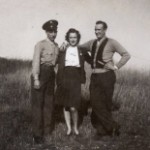
 those mischievous Spencer brothers to set off a stick of dynamite, right there on the gate post of the Pearly Gates, and sink one side several inches into the ground!! Nevertheless, I can see their minds clicking, sharp as ever now, thinking…”Hey, lets give that a try!!” Dynamite or not, there is a party going on in Heaven today. Grandma and Grandpa Spencer, and their kids are all together in Heaven again, and that’s worth celebrating. Uncle Bill we all love you very much and we will miss you always. You are in our future now, and we can’t wait to see you again.
those mischievous Spencer brothers to set off a stick of dynamite, right there on the gate post of the Pearly Gates, and sink one side several inches into the ground!! Nevertheless, I can see their minds clicking, sharp as ever now, thinking…”Hey, lets give that a try!!” Dynamite or not, there is a party going on in Heaven today. Grandma and Grandpa Spencer, and their kids are all together in Heaven again, and that’s worth celebrating. Uncle Bill we all love you very much and we will miss you always. You are in our future now, and we can’t wait to see you again.
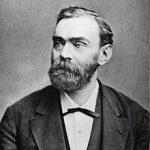 When Alfred Bernhard Nobel, the Swedish inventor of dynamite and other high explosives, died on December 10, 1896, he left a request in his will, that the bulk of his vast fortune be placed in a fund to finance an award to be “annually distributed in the form of prizes to those who, during the preceding year, shall have conferred the greatest benefit on mankind.” He did not state why he wanted to make such a bequest, but it was believed that he did so out of moral regret over the increasingly lethal uses of his inventions in war. The first Nobel Prizes are awarded in Stockholm, Sweden, in the fields of physics, chemistry, medicine, literature, and peace. The ceremony came on the fifth anniversary of Nobel’s death.
When Alfred Bernhard Nobel, the Swedish inventor of dynamite and other high explosives, died on December 10, 1896, he left a request in his will, that the bulk of his vast fortune be placed in a fund to finance an award to be “annually distributed in the form of prizes to those who, during the preceding year, shall have conferred the greatest benefit on mankind.” He did not state why he wanted to make such a bequest, but it was believed that he did so out of moral regret over the increasingly lethal uses of his inventions in war. The first Nobel Prizes are awarded in Stockholm, Sweden, in the fields of physics, chemistry, medicine, literature, and peace. The ceremony came on the fifth anniversary of Nobel’s death.
Educated in private schools in Saint Petersburg, Russia, Nobel excelled in Swedish, Russian, French, English and German. His primary interests were in English literature and poetry as well as in chemistry and physics. His interest in literature and poetry, was upsetting to his father, who considered him an introvert. He wanted his sons to become engineers, and to join his enterprise. In an effort to redirect Alfred’s interests, his father sent him abroad for further training in chemical engineering. During a two year period Alfred Nobel visited Sweden, Germany, France and the United States. In Paris, the city he came to like best, he worked in the private laboratory of Professor T J Pelouze, a famous chemist. There he met the young Italian chemist Ascanio Sobrero who, three years earlier, had invented nitroglycerine, a highly explosive liquid. Alfred Nobel proved himself to be a brilliant chemist. When his father’s business faltered after the end of the Crimean War, Nobel returned to Sweden and set up a laboratory to experiment with explosives. In 1863, he invented a way to control the detonation of nitroglycerin, which was previously regarded as too dangerous for use. Two years later, Nobel invented the blasting cap, an improved detonator that brought about the modern use of high explosives. Previously, the most dependable explosive was black powder, a form of gunpowder. Nitroglycerin remained dangerous, however, and in 1864 Nobel’s nitroglycerin factory blew up, killing his younger brother and several other people. Searching for a safer explosive, Nobel discovered in 1867 that the combination of nitroglycerin and a porous substance called Kieselguhr produced a highly explosive mixture that was much safer to handle and use. Nobel called his invention “dynamite,” for the Greek word dynamis, meaning “power.” Securing patents on dynamite, Nobel acquired a fortune as humanity put his invention to use in construction and warfare. Over his lifetime Alfred Nobel earned 355 patents.
All his work, left little time for a social life. At 43 years of age, feeling lonely and old, he placed an add for a woman who might become a suitable mate for him. The only one who came close to being the one, was Countess Bertha Kinsky, unfortunately she returned home and married Count Arthur von Suttner, but she and Nobel remained friends and kept writing letters to each other for decades. Over the years Bertha von Suttner became increasingly critical of the arms race. She wrote a famous book, Lay Down Your Arms and became a prominent figure in the peace movement. No doubt this influenced Alfred Nobel when he wrote his final will which was to include a Prize for persons or organizations who promoted peace. Several years after the death of Alfred Nobel, the Norwegian Parliament decided to award the 1905 Nobel Peace Prize to Bertha von Suttner.
The first Nobel Prizes were awarded on December 10, 1901, and subsequent prizes are awarded each year on 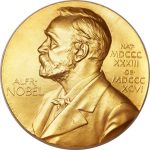 December 10, because it is the anniversary of Alfred Nobel’s death. It is the perfect day for the awards to be given. The Royal Swedish Academy of Sciences decides the prizes in physics, chemistry, and economic science. The Swedish Royal Caroline Medico-Surgical Institute determines the physiology or medicine award. The Swedish Academy chooses literature, and a committee elected by the Norwegian parliament awards the peace prize. In 2006, each Nobel Prize carried a cash prize of nearly $1,400,000 and recipients also received a gold medal, as is the tradition. Some notable winners have included Marie Curie, Theodore Roosevelt, Albert Einstein, George Bernard Shaw, Winston Churchill, Ernest Hemingway, Martin Luther King Jr, the Dalai Lama, Mikhail Gorbachev, and Nelson Mandela. All made Nobel efforts in their field.
December 10, because it is the anniversary of Alfred Nobel’s death. It is the perfect day for the awards to be given. The Royal Swedish Academy of Sciences decides the prizes in physics, chemistry, and economic science. The Swedish Royal Caroline Medico-Surgical Institute determines the physiology or medicine award. The Swedish Academy chooses literature, and a committee elected by the Norwegian parliament awards the peace prize. In 2006, each Nobel Prize carried a cash prize of nearly $1,400,000 and recipients also received a gold medal, as is the tradition. Some notable winners have included Marie Curie, Theodore Roosevelt, Albert Einstein, George Bernard Shaw, Winston Churchill, Ernest Hemingway, Martin Luther King Jr, the Dalai Lama, Mikhail Gorbachev, and Nelson Mandela. All made Nobel efforts in their field.
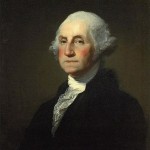
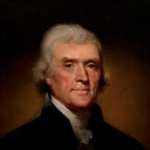 Over the years, my family and I have spent many vacations and weekend trips, especially the 4th of July, in the Black Hills of South Dakota. We love the area, and it’s close enough to home to get there even for a three day weekend. Bob and I mostly love to hike the many trails there, as opposed to the tourist attractions, since we have been there many times. Nevertheless, there are a few places that we usually go and things we usually do, like the 1880 Train, Keystone, and of course, Mount Rushmore. Being patriots, Bob and I are very much impressed by the carvings on Mount Rushmore. I think most people know that four United States Presidents, who were instrumental in making this country great, are carved in the granite face of the mountain. If you go there, you will see, President George Washington, President Thomas Jefferson, President Theodore Roosevelt, and President Abraham Lincoln, looking out across the land, making a majestic tribute to these men and to our nation as a whole. These four presidents were chosen because they represent the first 130 years of American history well. These presidents were selected by Borglum because of their role in preserving the Republic and expanding its territory. I can’t go there, or even drive by the monument, without feeling a deep sense of pride
Over the years, my family and I have spent many vacations and weekend trips, especially the 4th of July, in the Black Hills of South Dakota. We love the area, and it’s close enough to home to get there even for a three day weekend. Bob and I mostly love to hike the many trails there, as opposed to the tourist attractions, since we have been there many times. Nevertheless, there are a few places that we usually go and things we usually do, like the 1880 Train, Keystone, and of course, Mount Rushmore. Being patriots, Bob and I are very much impressed by the carvings on Mount Rushmore. I think most people know that four United States Presidents, who were instrumental in making this country great, are carved in the granite face of the mountain. If you go there, you will see, President George Washington, President Thomas Jefferson, President Theodore Roosevelt, and President Abraham Lincoln, looking out across the land, making a majestic tribute to these men and to our nation as a whole. These four presidents were chosen because they represent the first 130 years of American history well. These presidents were selected by Borglum because of their role in preserving the Republic and expanding its territory. I can’t go there, or even drive by the monument, without feeling a deep sense of pride 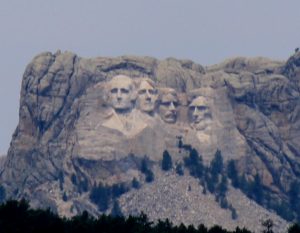 and awe. It’s almost like you can feel history when you are there.
and awe. It’s almost like you can feel history when you are there.
On March 5, 1925, the Governor of South Dakota, Carl Gunderson signed the Mount Harney bill, which would allow the carving of a monument in Custer State Park. The mountain was chosen as the sight for the carvings by Gutzon Borglum, the artist in charge of the project, and really the visionary of what it would become. It was dedicated on October 1, 1925, as the sight for the carving that South Dakota state historian Doane Robinson first dreamed of seeing in the Black Hills, back in 1923. On October 7, 1927, the actual carving began. The project took 14 years and 400 men to complete the carving of the mountain. The conditions were harsh and dangerous, yet no one died during the project. Over 90% of Mount Rushmore was carved using dynamite. That is probably one of the facts about Rushmore that most people find most intriguing. The blasts removed approximately 450,000 tons of rock. If you walk on the President’s Trail, you can still see the drill marks used for the dynamite. The fine details were finished with jackhammers and hand chisels. It really isn’t what you would have expected at all.
George Washington was dedicated on July 4, 1930. Then work began on Thomas Jefferson, but many people thought it was Martha Washington for a time…a drawback of an artists work being done so much in the 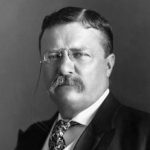
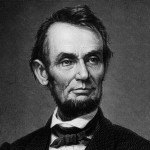 public eye. Thomas Jefferson was dedicated on August 30, 1936. Abraham Lincoln was dedicated on this day, September 17, 1937, and Theodore Roosevelt was dedicated on July 2, 1939. The Hall of Records was never finished because of dangerous working conditions. Gutzon Borglum died suddenly on March 6, 1942, and the work on the mountain was finished by his son, Lincoln Borglum. With the onset of the US involvement in World War II, the mountain was declared complete on October 31, 1941. So ended the work on the mountain, and I really never get tired of hearing the story.
public eye. Thomas Jefferson was dedicated on August 30, 1936. Abraham Lincoln was dedicated on this day, September 17, 1937, and Theodore Roosevelt was dedicated on July 2, 1939. The Hall of Records was never finished because of dangerous working conditions. Gutzon Borglum died suddenly on March 6, 1942, and the work on the mountain was finished by his son, Lincoln Borglum. With the onset of the US involvement in World War II, the mountain was declared complete on October 31, 1941. So ended the work on the mountain, and I really never get tired of hearing the story.
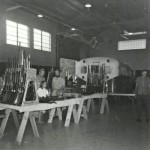
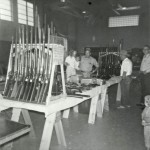 For as long as I can remember, my Uncle Bill Spencer was a gun dealer. He went to gun shows, had every kind of gun imaginable, and every accessory for them. Uncle Bill is a patriot, and he hated anything that remotely resembled an infringement on our Constitutional rights…especially the 2nd Amendment. Not only did he sell guns, but he talked to people about the importance of fighting for our Constitutional rights. That’s not surprising really, my dad, aunts, and uncles on both sides of my family, grew up in a time when America was strong and people understood what it took to keep it that way. Of course, there are still patriots today, but there are also far too many Americans who have forgotten the reason behind our freedoms. And that government should not be allowed to infringe upon those rights.
For as long as I can remember, my Uncle Bill Spencer was a gun dealer. He went to gun shows, had every kind of gun imaginable, and every accessory for them. Uncle Bill is a patriot, and he hated anything that remotely resembled an infringement on our Constitutional rights…especially the 2nd Amendment. Not only did he sell guns, but he talked to people about the importance of fighting for our Constitutional rights. That’s not surprising really, my dad, aunts, and uncles on both sides of my family, grew up in a time when America was strong and people understood what it took to keep it that way. Of course, there are still patriots today, but there are also far too many Americans who have forgotten the reason behind our freedoms. And that government should not be allowed to infringe upon those rights.
My Uncle Bill, and my dad, Allen Spencer, who was two years younger than his brother, were around guns and dynamite most of their lives. The dynamite shocked me when I first heard about it, but after they finished their story, it all made sense. For anyone who has ever tried to get rid of a tree stump, dynamite makes sense at some point. However, these boys were just a little bit crazy with their dynamite antics, from sinking the gate post while their mom was in town and then fixing it before she got home, to blowing up dynamite to celebrate the fourth of July, I don’t think their mom ever knew what to expect from them. Nevertheless, they were both safety conscious too…even as kids. They knew what could happen if you weren’t safe.
One time my dad heard that Uncle Bill was going to be in Rapid City for a gun show. Dad had been growing a beard for a centennial, and so didn’t look exactly like himself. We showed up at the gun show without telling him we were coming. Mom and Dad sent us girls ahead to just look around Uncle Bill’s table. Dad’s plan 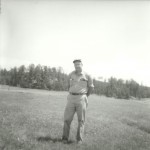
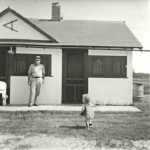 worked. When Uncle Bill finally realized who we were, he was both pleased and stunned. It was such a great prank to pull on him, and he was totally fooled. Then we had a wonderful visit with him afterward. Uncle Bill has always been so special to me, and I missed him a lot. I think we had a lot in common. Our interests run along the same lines, and that made our visits special, and our partings tough. I’m thankful that we still have Uncle Bill in our lives, but I wish we could see him more often. Today is Uncle Bill’s 94th birthday. Happy birthday Uncle Bill!! Have a great day!! We love you!!
worked. When Uncle Bill finally realized who we were, he was both pleased and stunned. It was such a great prank to pull on him, and he was totally fooled. Then we had a wonderful visit with him afterward. Uncle Bill has always been so special to me, and I missed him a lot. I think we had a lot in common. Our interests run along the same lines, and that made our visits special, and our partings tough. I’m thankful that we still have Uncle Bill in our lives, but I wish we could see him more often. Today is Uncle Bill’s 94th birthday. Happy birthday Uncle Bill!! Have a great day!! We love you!!
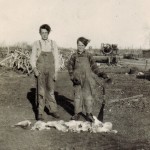 As young men, my dad and his brother, my Uncle Bill loved to do all the normal guy thins that most young men want to do, and hunting was right up there near the top, along with fishing, and pretty much anything that had to do with guns or dynamite, such as blowing a tree stump out of the ground, or sinking the front gate, and then fixing it before their mom found out. They were rough and rugged boys who, like most young men of those times, were growing up too fast. Times were hard, and families needed all the help they could get from all their children. Hunting was something families could do to supply food for their tables, and rabbits were always in abundance…then and now. Of course, for my dad and uncle, the guns were a cool as the hunting. They both loved guns and knew how to use them from the time they were little. Uncle Bill was hunting this particular day with a Mossberg, and my dad was using a 1906 Winchester.
As young men, my dad and his brother, my Uncle Bill loved to do all the normal guy thins that most young men want to do, and hunting was right up there near the top, along with fishing, and pretty much anything that had to do with guns or dynamite, such as blowing a tree stump out of the ground, or sinking the front gate, and then fixing it before their mom found out. They were rough and rugged boys who, like most young men of those times, were growing up too fast. Times were hard, and families needed all the help they could get from all their children. Hunting was something families could do to supply food for their tables, and rabbits were always in abundance…then and now. Of course, for my dad and uncle, the guns were a cool as the hunting. They both loved guns and knew how to use them from the time they were little. Uncle Bill was hunting this particular day with a Mossberg, and my dad was using a 1906 Winchester.
Like most boys, they had high hopes for their hunts. They were going to bag that big buck, or the most rabbits, or even bring in the most fish. I’m sure they competed against each other, 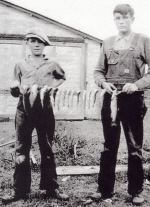 but I think that quite often, they pooled their resources and tried to beat the record they set the last time they went. Of course, nothing went to waste either, because that was not how things were done. The kills they made provided food for their family during those hard times of the great depression.
but I think that quite often, they pooled their resources and tried to beat the record they set the last time they went. Of course, nothing went to waste either, because that was not how things were done. The kills they made provided food for their family during those hard times of the great depression.
Though times were tough, I don’t really think my dad or his brother noticed it much, nor did their sisters really. Sure, they knew times were tough, and that everyone had to help out, but it was simply a way of life, and nothing they thought was so special. I guess that is pretty common with most people who aspire to do great things, whether it be heroic acts, service to country, or stepping up for family. Heroes come in all kinds of forms, and I’m sure that my dad’s family thought of their kids as heroes for all the help they gave them through the years.

